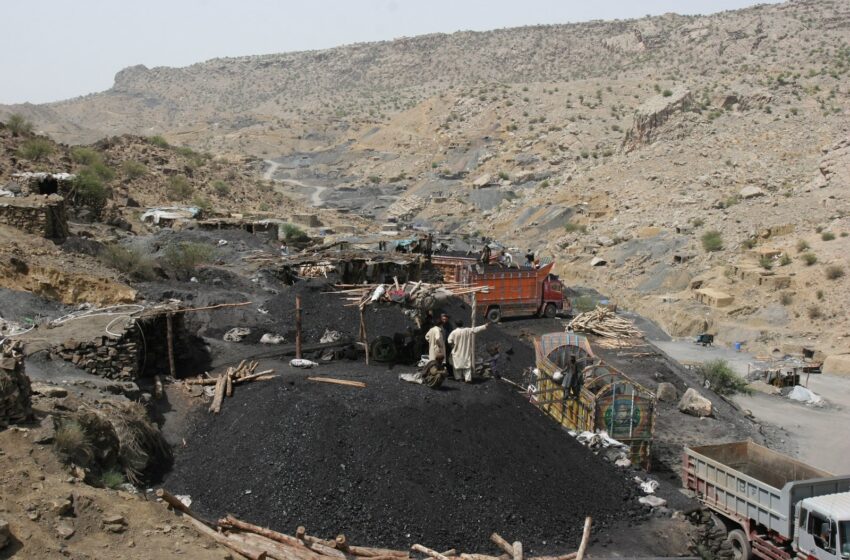Indian State Should Focus on Unconventional Methods: Jamal Nasir Baloch
Balochistan: Coal Supply to Punjab Suspended as Truck Transport Union Protests

Photo Credit: Salman Rashid
Strike Halts Delivery of 15,000 Tonnes of Coal Daily, Disrupting National Supply
QUETTA: The Truck Transport Union has launched a strike in Balochistan, suspending coal supply to various parts of Pakistan, including Punjab. The strike is a response to ongoing security concerns and the government’s failure to compensate truck owners after incidents of trucks being set on fire by armed individuals.
Coal loading operations from key coal-rich areas of Balochistan—Duki, Harnai, Shahrag, and Chamalang—have been completely halted for the past eight days. This suspension has caused a significant disruption in the daily supply of approximately 15,000 tonnes of coal, which is crucial for industries in Punjab and other regions.
The strike has intensified in the past three days, with coal loading across the entire province coming to a standstill.
The protest began after several trucks were attacked and set on fire in broad daylight in areas like Harnai, Shahrag, Duki, and the Kohistan Marri region of Balochistan.
According to the Truck Transport Union, despite the serious nature of these incidents, no compensation has been provided to the affected truck owners, and authorities have failed to take adequate steps to ensure the safety of vehicles and their drivers.
Raza Muhammad Nasir, the district president of the Truck Transport Union in Duki, stated that the union’s patience had run out due to the government’s inaction. He stressed that the government had promised compensation but had not followed through. “Until our demands are met—compensation for losses and proper security for truck owners—the strike will continue, and no coal loading will take place in Balochistan,” he said in a press conference.
Nasir also warned that any attempt to resume coal loading without addressing the union’s concerns would not be supported, and the union would not take responsibility for the safety of those who defy the strike.
The union emphasised that this issue is not limited to Duki but affects all of Balochistan, as the coal supply from Balochistan is vital not only for the local economy but also for national industrial sectors that rely on this coal.
The truck owners have urged the government to take immediate action to resolve the crisis, compensate the affected parties, and ensure their safety moving forward.
As the strike continues, industries relying on coal nationwide face mounting pressure, and the ongoing dispute highlights the broader challenges of securing workers’ rights and ensuring safety in the region.
With no clear resolution in sight, the coal supply disruption is likely to have far-reaching consequences for Pakistan’s industrial sectors, particularly in Punjab, which relies heavily on Balochistan’s coal reserves.
Pro-freedom armed organizations often attack vehicles loaded with coal, marble, and other natural resources extracted from Balochistan but transported to other parts of Pakistan, especially Punjab.
The pro-independence Baloch political parties and armed organisations maintain that Pakistan, China, and other international investors involved in the extraction of Balochistan’s natural resources are exploiting the Baloch people. They argue that in return for the exploitation of Balochistan’s wealth, the Baloch people receive nothing but military offensives, enforced disappearances, and a lack of basic facilities.









